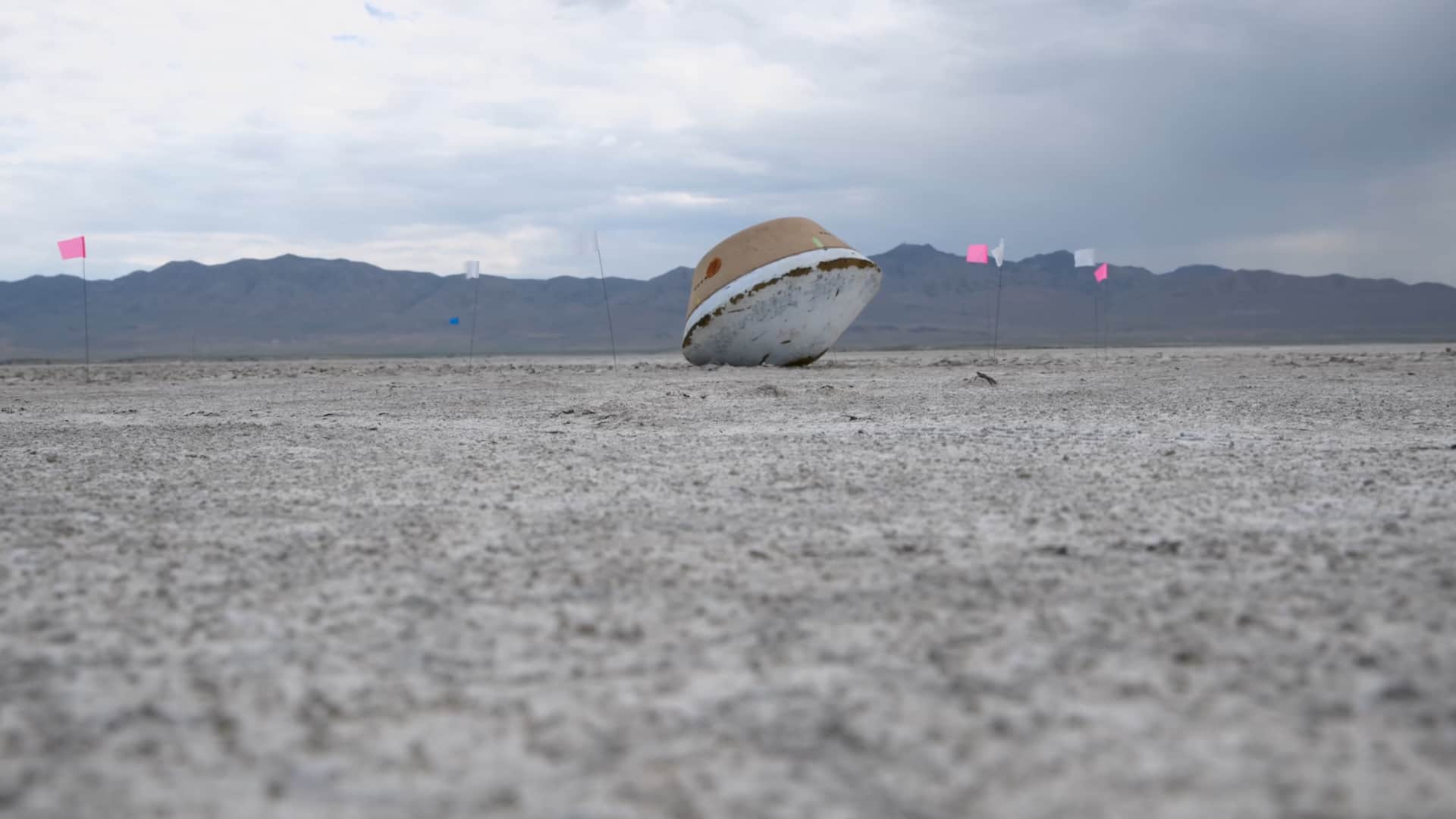
NASA to unveil OSIRIS-REx asteroid sample today: How to watch
What's the story
Today, NASA will reveal the first findings from the asteroid sample collected by its OSIRIS-REx mission.
Launched in September 2016, the $1.2 billion OSIRIS-REx mission successfully gathered sample from the near-Earth asteroid Bennu in October 2020.
The mission's journey back home ended last month with a parachute-assisted touchdown in northern Utah.
The returned asteroid sample has been examined by NASA scientists and later today we will get to know more about the alien dust and rock specimen.
Details
OSIRIS-REx: The mission's journey and significance
Almost two years after launch, the OSIRIS-REx spacecraft arrived at its target asteroid Bennu in December 2018, making history by orbiting the smallest cosmic object ever by a spacecraft.
The mission's goal was to collect at least 60g of material from the asteroid's surface. Estimates suggest that OSIRIS-REx may have gathered around 250g of asteroid material, but we will know for sure during today's event.
Notably, OSIRIS-REx is NASA's first attempt to bring back an asteroid sample.
Insights
Significance of the asteroid sample and future research
Samples collected from carbon-rich space rocks like Bennu could offer crucial information about organic molecules that might have seeded Earth with life's building blocks through asteroid impacts.
In doing so, the mission could enhance our understanding of the early days of our solar system.
Asteroid Bennu is estimated to be around 4.5 billion years old.
Scientists intend to study the Bennu sample for years to come and it will be preserved for research by future generations of scientists.
Instructions
How to watch today's event?
During today's event, NASA officials will share early results from the analysis of the asteroid sample and offer a closer look at the obtained material.
The event starts at 8:30pm IST and will be broadcast via NASA Television, the NASA app, and NASA's website.
Last month, only the OSIRIS-REx return capsule returned to Earth, while the larger spacecraft continued its journey toward another asteroid called Apophis.
The probe is expected to arrive at Apophis in 2029.